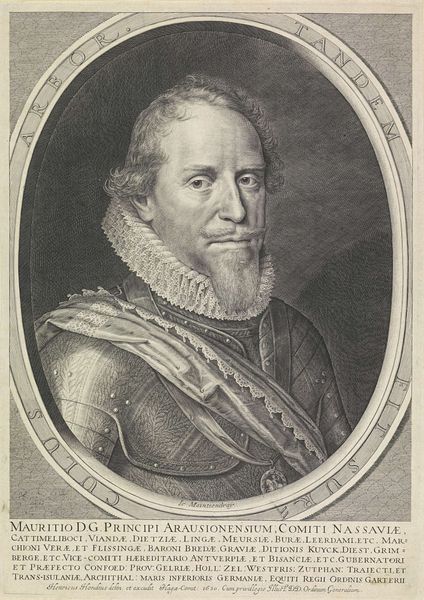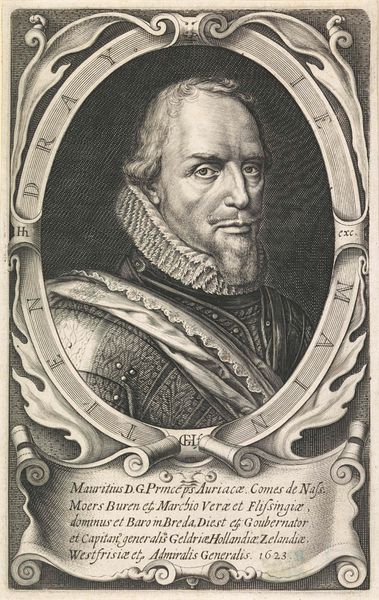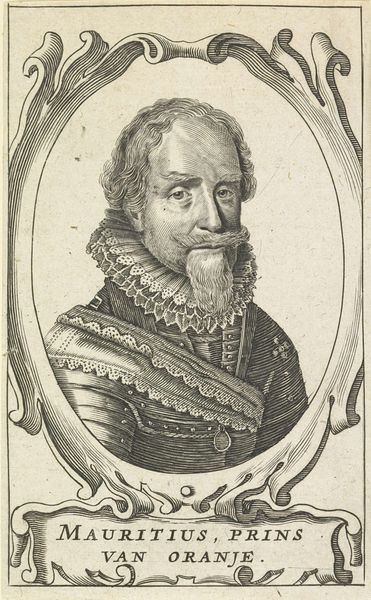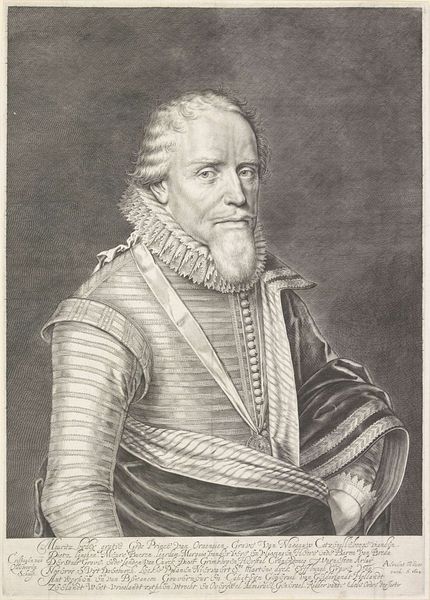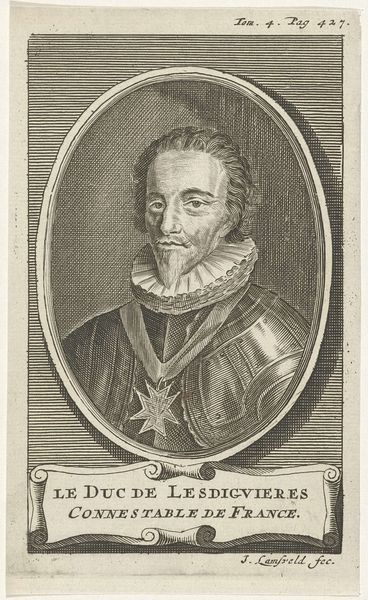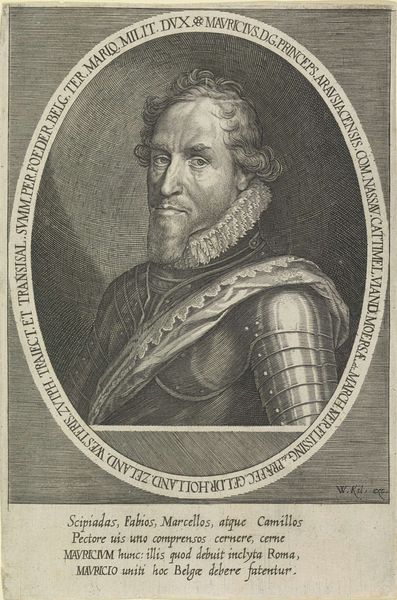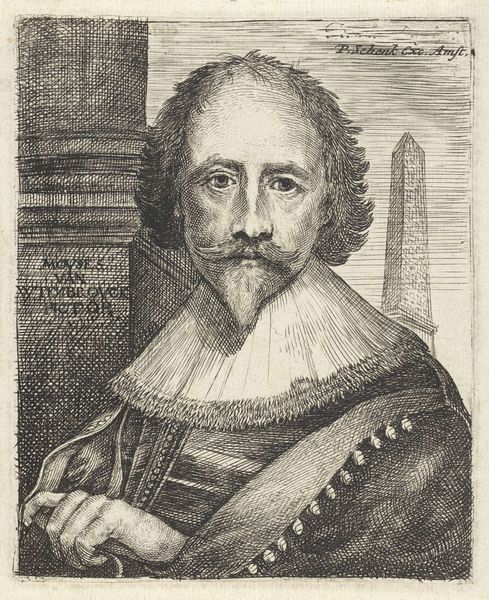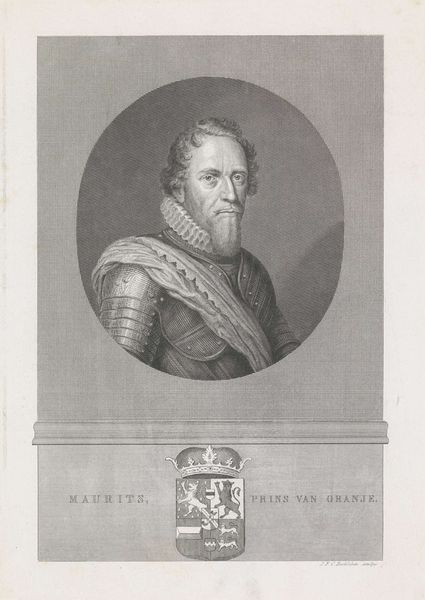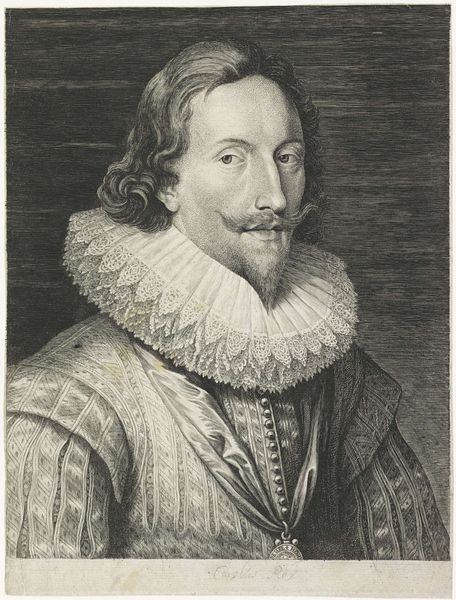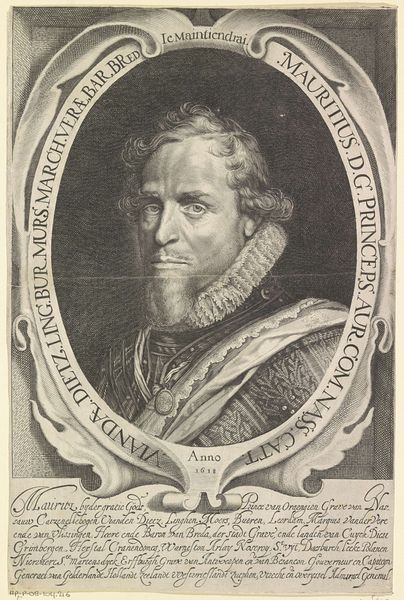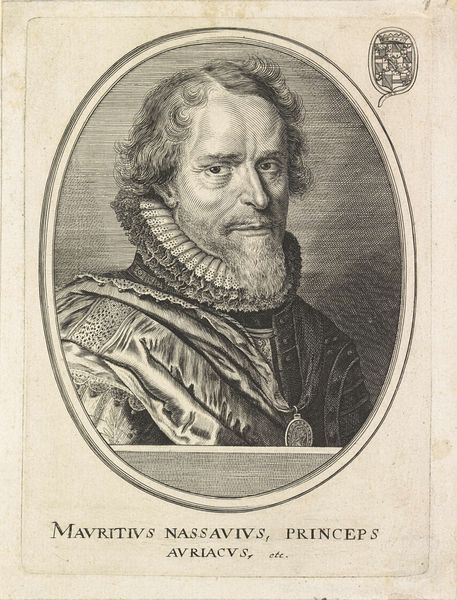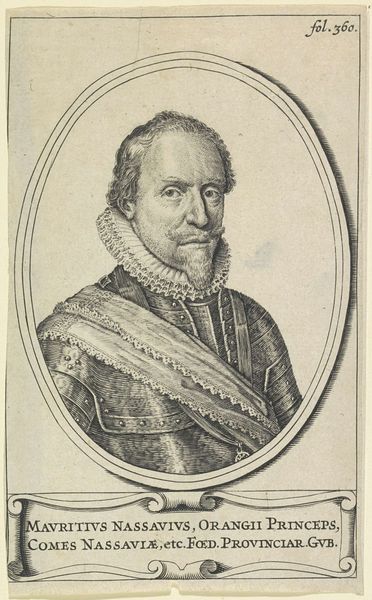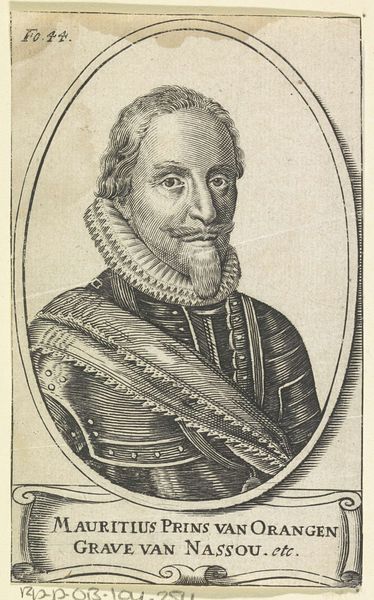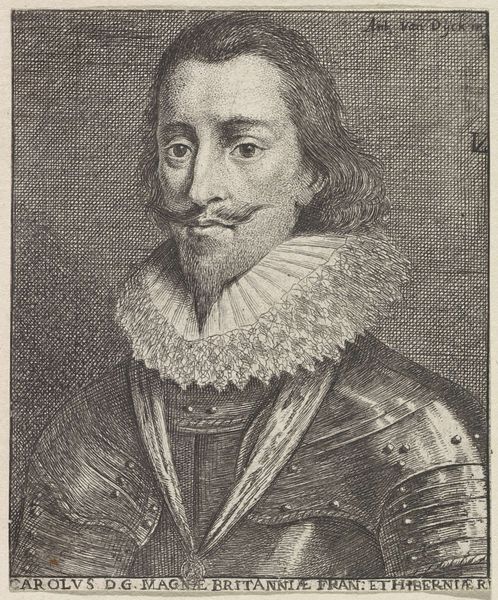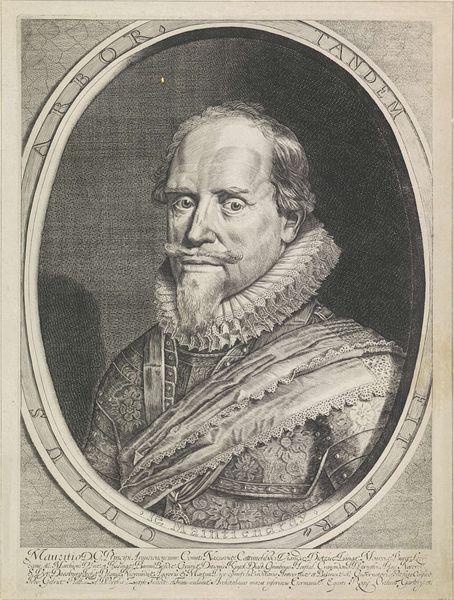
#
portrait
#
portrait reference
#
portrait head and shoulder
#
portrait drawing
#
facial portrait
#
portrait art
#
fine art portrait
#
self portrait
#
celebrity portrait
#
digital portrait
Copyright: Public domain
Curator: This is John Riley’s depiction of Prince Maurice of Nassau, Prince of Orange. Editor: There's a penetrating, somewhat weary gaze, isn't there? It's as if the sitter carries the weight of a realm on his shoulders, amplified by that armor. Curator: Armor is so symbolic here, protection, defense, not just of the physical body, but also of the role and power it represents. It reminds the viewer that those who governed depended upon their military, which made their positions of leadership always in the foreground. Editor: It's interesting how that contrasts with the vulnerable, almost soft expression. There’s tension between the external power projected by the armor and that intensely human face, wouldn't you agree? This work really resonates as commentary on masculinity, then and now. There is so much projection involved, particularly around ideals of military might. What did Riley seek to express about power and the individual, I wonder? Curator: A constant dialectic. I notice too that red sash. Red often signifies courage, but also sacrifice and anger. The ruffled collar emphasizes the head. All attention is directed to his leadership. Red symbolizes courage, sacrifice, or wrath. Together, his eyes, armor, sash, and collar all speak to his inner and outer power, though we are unsure as to what era the painting belongs to and what this all meant at the time of this piece. Editor: I do wonder about the artistic context as well. Looking at how power is performed through dress—military dress in particular—opens some interesting doors. Curator: I agree; images such as this become important historical texts to be read, offering insight into belief systems during their creation. Editor: Ultimately, the artwork becomes less about an individual portrait and more a potent cultural artifact that invites analysis on shifting sands of social ideologies, and perceptions.
Comments
No comments
Be the first to comment and join the conversation on the ultimate creative platform.
